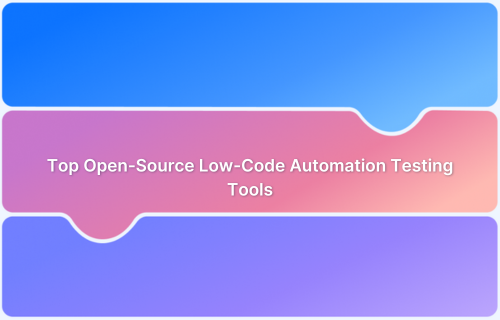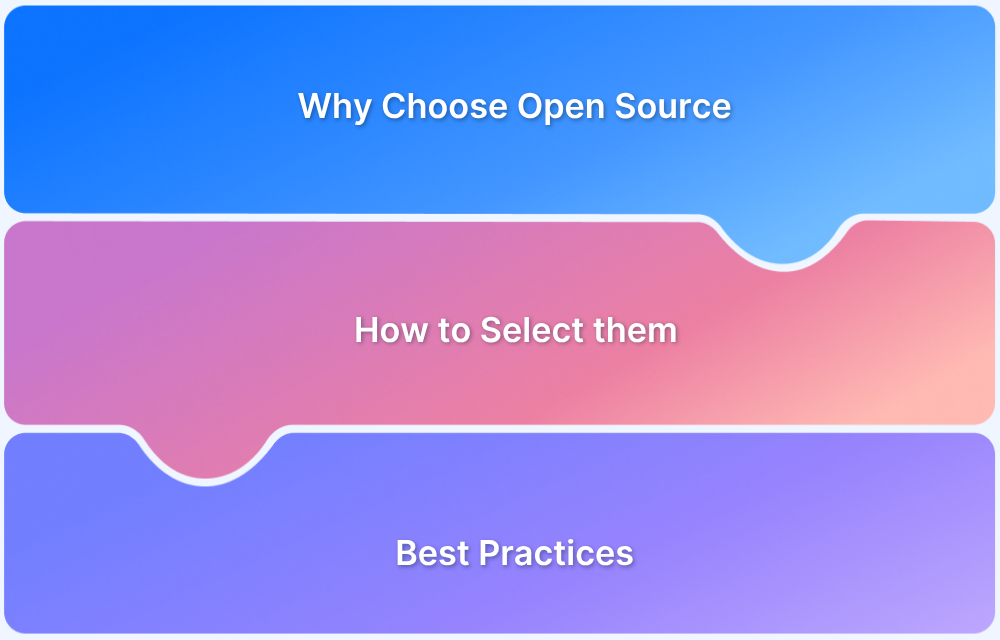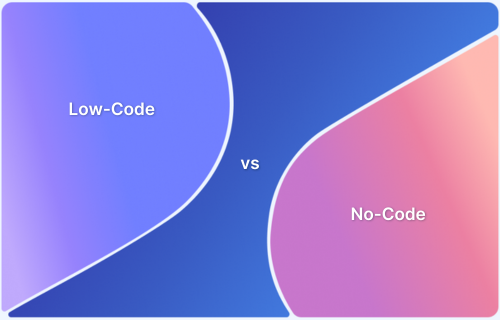Functionize is a leading AI-powered, codeless testing platform that simplifies web application testing. Its intuitive interface and robust cloud infrastructure allow teams to rapidly automate tests with minimal effort.
However, for some teams, Functionize’s enterprise focus, limitations in platform support, and pricing structure may not be the ideal fit.
Overview
Top Functionize Alternatives:
- BrowserStack Low-Code Automation: AI-powered self-healing with real-device testing for web and mobile automation.
- UI Bakery: Rapid internal app creation with drag-and-drop UI components and flexible data integration.
- Appsmith: Open-source platform with strong integrations and community support for internal tool development.
- Appian: Enterprise-grade automation platform with robust integrations and complex workflow automation.
- Xano: No-code backend platform with fast API development and scalable automation.
- Leapwork: Visual flow-based no-code automation tool with cross-platform support.
- Rainforest QA: Cloud-based no-code testing with AI-driven stabilization and crowd QA augmentation.
- Testim: Low-code platform with AI-driven maintenance and JavaScript flexibility for advanced workflows.
- Katalon: Unified automation for web, API, desktop, and mobile testing with AI-driven features.
- Reflect.run: Cloud-based no-code testing platform with an interactive browser and workflow integrations.
- Virtuoso QA: AI-powered test authoring using natural language processing and cloud scalability.
- Ghost Inspector: Browser-based no-code test automation with easy recording, scheduling, and monitoring.
- Mabl: Low-code automation for web and mobile testing with AI-powered self-healing and modular test flows.
- TestComplete: Scriptless and scripted test automation for desktop, web, and mobile with AI support.
This article explores the best Functionize alternatives that offer similar features while providing more flexibility, scalability, and user-friendly pricing models.
What is Functionize?
Functionize is a cloud-based, AI-driven testing platform designed to automate web application testing. It allows teams to quickly generate tests via Chrome plugin recording, and leverages AI for self-healing tests, making it easy for non-developers to build and maintain tests.
Functionize provides scalability through its cloud infrastructure and is optimized for large teams needing advanced assertions and test logic.
Key Features:
- AI-Driven Test Generation and Self-Healing: Automatically generates tests and adapts to changes in the UI.
- Chrome Plugin for Test Recording: Quickly record and convert user actions into tests using a Chrome plugin.
- Architect Module for Visual Editing: Enables complex test logic and visual editing for more advanced use cases.
- Cloud-Hosted Platform: Allows parallel test execution, ensuring faster test cycles and scalability across large projects.
Read More: Why No Code is the Future of Testing
Why Look for Alternatives to Functionize?
While Functionize is a strong platform, it may not suit all teams for the following reasons:
- Enterprise Focus: Functionize is tailored towards larger enterprises, which may not be suitable for small teams or startups looking for simpler or more affordable solutions.
- Pricing Structure: Functionize offers custom pricing, which can make it difficult to estimate costs, especially for smaller teams. Some features are only available in higher-priced tiers.
- Platform Limitations: Functionize is primarily web-focused and may not support mobile or desktop applications, limiting its versatility for certain projects.
- Learning Curve: The advanced AI and Architect component can require a steep learning curve, particularly for non-technical users.
Considering these limitations, exploring alternatives to Functionize might provide more flexibility, cost-effectiveness, and broader platform support.
Try BrowerStack Low Code Automation
Functionize Alternatives: Quick Overview
Below are the leading alternatives to Functionize. The table compares their key features, pros and cons.
| Tool | Pros | Cons | Free Plan |
|---|---|---|---|
| BrowserStack Low-Code Automation | AI-powered self-healing, real-device testing, low-code authoring | Advanced features require paid plans | ✅ Free plan for unlimited test creation |
| UI Bakery | Rapid internal app creation, drag-and-drop UI components | Limited mobile support, learning curve | ✅ |
| Appsmith | Open-source platform with strong integrations and community support | Performance issues on complex data sets | ✅ |
| Appian | Enterprise-grade automation, complex workflows | Expensive, steep learning curve | ❌ |
| Xano | No-code backend platform for API and workflow automation | Relies on external platforms for front-end UI | ✅ Starter plan |
| Leapwork | Visual flow-based no-code automation across platforms | Expensive at enterprise scale | ❌ |
| Rainforest QA | Cloud-based automation with AI stabilization and on-demand crowd QA | Web-only, costly | ❌ |
| Testim | Low-code testing with AI-driven maintenance and JavaScript flexibility | Paid advanced features | ✅ |
| Katalon | Unified automation for web, API, desktop, and mobile testing | Some features in beta, performance varies | ✅ |
| Reflect.run | No-code end-to-end testing with cloud-based browser integration | Limited to browser/web app testing | ✅ (restricted) |
| Virtuoso QA | AI-powered test authoring using natural language | No support for desktop and mobile apps | ❌ |
| Ghost Inspector | No-code browser automation with recording and scheduling features | Limited branching logic for complex flows | ✅ |
| Mabl | Low-code web and mobile testing with AI-driven self-healing | Proprietary platform, requires subscription | ❌ |
| TestComplete | Scriptless and scripted automation for desktop, web, and mobile | Windows-centric, costly, steep learning curve | ❌ |
Popular Functionize Alternatives
Below are the leading platforms teams often compare with Functionize. Each tool provides distinct strengths to meet different testing and development needs.
1. BrowserStack Low-Code Automation
BrowserStack Low-Code Automation empowers teams to create, run, and maintain automated tests without writing code.
It combines an interactive test recorder, AI-powered self-healing, and real device cloud testing so teams can begin testing and start automation in minutes and scale across browsers and devices.
With AI-powered self-healing and low-code authoring agents, it speeds up test creation by up to 10x and reduces build failures by up to 40%, delivering faster, more stable automation for both technical and non-technical users.
Key Features of BrowserStack Low-Code Automation:
- Test Recorder: Easily capture user actions like clicks and form inputs and transform them into automated tests. This recorder supports complex functional validations including visual and text validations.
- Readable Test Steps: Actions recorded are converted into simple, human-readable English instructions, making it easy for anyone to understand and modify tests.
- Visual Validation: Enables testers to add checkpoints during recording that verify the correct display of UI components or screens, ensuring that visual elements render as expected.
- AI-Powered Self-Healing: Uses AI to detect when UI elements change and automatically updates the test to prevent failures. This minimizes the need for manual test maintenance.
- Low-Code Authoring Agent: Uses AI to turn natural language prompts into executable test steps, automating tasks from simple instructions.
- Cross-Browser & Mobile Testing: Runs tests on real desktop browsers and mobile devices in the BrowserStack cloud, covering a wide range of operating systems and devices.
- Data-Driven Testing: Allows the same test to be executed with different input values, enabling broader coverage of scenarios without creating separate tests.
- Reusable Modules:Lets teams save common sequences of steps as reusable modules that can be inserted into multiple test cases, reducing duplication and simplifying maintenance.
- API Step Integration: Adds flexibility by letting testers call APIs from within the test for tasks such as generating data, setting up test conditions, or cleaning up databases.
- Test Scheduling and CI/CD Integration: Enables automated tests to run on a set schedule or trigger directly from build pipelines via REST APIs or popular CI tools, ensuring continuous validation without manual intervention.
- Test Editing Without Re-Recording: Allows testers to open an existing test and modify, insert, or delete steps without having to re-record the whole test, saving time during maintenance.
- Private Environment Testing & Email Notifications: Test internal or staging environments securely and receive detailed email reports with build results for quick stakeholder updates.
Pricing
- Free Plan: Includes unlimited test creation, AI-generated test data, intelligent wait timeouts, API steps, localhost and staging testing, video debugging, and 24×7 support.
- Paid Plan: Adds AI agents, self-healing, parallel execution.
Get Started with BrowserStack Low Code Automation
2. UI Bakery
UI Bakery streamlines the creation of internal apps and dashboards, blending a visual builder with robust data connections and optional custom scripting.
Key Features
- 100+ customizable drag-and-drop UI components
- Integrates with SQL, NoSQL, REST APIs, and third-party data sources
- Visual workflow and design system with advanced branding controls
- Ability to add business logic using SQL, Python, or JavaScript
Pros
- Fast to build and launch internal, data-driven tools
- Easily connects to a wide range of data sources
Cons
- Advanced logic can require coding fluency
- Mobile app capabilities are limited out of the box
Pricing: Free plan available; paid options start at $5/user/month.
3. Appsmith
Appsmith is an open-source, low-code solution for building adaptable web interfaces and custom internal tools with database/API integration and full version control.
Key Features
- Large library of ready-to-use UI widgets, including AI and database integrations\
- Connects easily with REST/GraphQL APIs, databases, and SaaS apps
- Full logic customization using JavaScript, with built-in IDE and debugging
- Git-based version control and CI/CD pipeline compatibility
Pros
- Open source with flexible deployment and no vendor lock-in
- Highly customizable with strong backend integrations
Cons
- Can encounter slowdowns with complex apps
- Some custom UIs require hands-on coding
Pricing: Free (up to 5 users); business plan is $15/user/month.
Also Read: 13 Open Source AI Testing Tools
4. Appian
Appian offers a powerful, enterprise-grade environment for automating complex processes at scale, with visual modeling and broad integration.
Key Features
- Process modeling, automation, and case management
- Native AI/ML process orchestration and analytics
- Out-of-the-box integrations with major ERPs and legacy systems
- Advanced governance: roles, audit, security compliance
Pros
- Ideal for automating sophisticated, high-volume workflows
- Integrates well with large enterprise IT ecosystems
Cons
- Premium pricing; details only provided on request
- Can be overwhelming for simple use cases or small teams
Pricing: Pricing is custom and available upon request.
5. Xano
Xano is a code-free backend platform built for scalable API and workflow automation, allowing rapid deployment of server logic and database operations.
Key Features
- Visual Function Stack builder for backend workflows
- PostgreSQL-powered relational database with advanced import/export
- API builder for REST, GraphQL, and webhooks
- Built-in automation with CRON tasks and external connector integrations
Pros
- Streamlines backend launch and iteration
- Scales well from startups to large apps
Cons
- No built-in visual front-end creation
- Complex automation may need backend expertise
Pricing: Free plan for basics, paid starts at $25/month.
6. Leapwork
Leapwork is a no-code test automation tool that leverages intuitive flowcharts and AI features for fast and reliable web, desktop, and legacy application testing.
Key Features
- Drag-and-drop flowchart-based test creator
- Cross-platform automation (web, desktop, legacy apps, SAP)
- Self-healing tests with AI/ML
- Real-time analytics and reporting dashboards
Pros
- Easy for non-programmers to automate complex tests
- Wide environment support, from web to legacy
Cons
- Pricing is custom and often high for small companies
- Most effective with vendor guidance for advanced features
Pricing: Custom pricing only.
7. Rainforest QA
Rainforest QA blends visual no-code authoring, cloud execution, and crowd testing for quick, scalable web app automation.
Key Features
- Visual, no-code test authoring and editing
- Self-healing/AI-stabilized test scripts
- Parallel test execution infrastructure
- Workflow integrations for CI/CD, Jira, Slack
Pros
- Simple to use for non-developers
- Scales teams with both automation and crowd testers
Cons
- Web-only, no desktop or mobile app support
- Increasing test volume can get expensive
Pricing: Custom pricing.
8. Testim
Testim uses AI for fast, low-code functional and visual web testing, enabling easy authoring and smart maintenance within DevOps pipelines.
Key Features
- Visual flow recording and test configuration
- Smart, AI-powered self-healing locators
- JavaScript extensibility for advanced logic/flexibility
- Cross-browser and visual regression testing
Pros
- Rapid, AI-assisted test creation and updates
- Integrates with leading CI/CD pipelines seamlessly
Cons
- Expansive features require upgrading from the free plan
- Scope is mainly limited to web testing
Pricing: Free trial and custom paid plans.
9. Katalon Platform
Katalon combines AI-driven testing, collaboration tools, and cross-channel support to democratize automated software quality for teams of any skill.
Key Features
- Visual testing for image-based assertions and UI regressions
- AI-powered TrueTest for user-journey discovery and maintenance
- Manual test generation directly from Jira issues
- StudioAssist for low-code scripting and auto-documentation
Pros
- AI features assist fast onboarding and scaling
- Effective for both non-coders and advanced testers
Cons
- Complex logic may still require custom scripts
- Performance can vary with very large suites
Pricing: Starter is free; paid from $84/user/month.
10. Reflect.run
Reflect.run allows teams to record, edit, and schedule full browser tests without writing code, all from a cloud platform.
Key Features
- Cloud-based interactive browser for test authoring
- Automatic selector generation to reduce test flakiness
- In-app workflow builder for notifications and scheduling
- Native CI integrations, video and log capture for every run
Pros
- Any team member can author or update tests
- Excels at complex, non-standard browser interactions
Cons
- Limited to web environment, with no desktop/mobile options
- Advanced features can push up costs
Pricing: Starts at $212/month after 14-day trial.
11. Virtuoso QA
Virtuoso QA uses NLP and AI to let users automate browser-based testing in the cloud by describing requirements in plain language.
Key Features
- NLP-based test scripting in plain English
- AI-powered automatic element discovery and test healing
- Parallel test execution on cloud devices/browsers
- Visual regression, data-driven, and E2E test support
Pros
- Suitable for both QA specialists and business users
- Fast test build and maintenance with minimal manual effort
Cons
- Not usable for native mobile or desktop apps
- More advanced capabilities come at higher cost
Pricing: Custom pricing.
12. Ghost Inspector
Ghost Inspector lets users automate web application testing with a browser extension, running scheduled and triggered tests in the cloud without coding.
Key Features
- Browser-based test recorder that supports complex web actions
- Visual editor for modifying, grouping, and scheduling tests
- Built-in integrations with Slack, GitHub, Jenkins, Trello, and more
- Automated monitoring with detailed screenshots and video
Pros
- Extremely approachable for those without coding knowledge
- Test scheduling and monitoring are straightforward
Cons
- Only applicable for web application testing
- Advanced reporting and features not included in basic plans
Pricing: Plans start at $109 per month.
Learn More: Comprehensive Guide to Low-Code Development
13. Mabl
Mabl enables both technical and business users to automate and maintain browser and mobile app tests via an intuitive, AI-powered low-code interface.
Key Features
- Intuitive test recorder for web and mobile, including API testing and email, PDF, database validation
- AI-powered self-healing for tests to reduce maintenance when UIs change
- Reusable modular test flows and Javascript/Appium snippet support for complex logic
- Seamless CI/CD, cloud-based parallel execution, and native integrations
Pros
- Low-code design makes test automation accessible to all roles
- AI-driven self-healing reduces time spent fixing tests
Cons
- Not open source and requires a paid subscription
- Most customizable for record-and-playback, less for scripting flexibility
Pricing: Custom/proprietary pricing only.
14. TestComplete
TestComplete provides an automated testing solution for desktop, web, and mobile apps with both scriptless and script-based options, plus AI for test maintenance.
Key Features
- Keyword-driven and record-playback test authoring
- AI-powered locator and self-healing maintenance
- Support for complex data-driven scenarios and OCR/visual checks
- Integrations with CI/CD and popular dev tools
Pros
- Supports comprehensive cross-platform automated UI testing
- AI-based features help reduce test flakiness and maintenance effort
Cons
- Mostly Windows-based, with fewer Mac/Linux capabilities
- Entry cost is high, especially for large teams
Pricing: Starts at $4,108 per year; 14-day free trial available.
Learn More: Top 12 AI Automation Testing Tools
Why Choose BrowserStack Low-Code Automation?
BrowserStack Low-Code Automation is one of the best alternatives to Functionize, offering several benefits for teams looking for a more flexible and user-friendly solution:
- Real-Device Testing: Unlike Functionize, which primarily supports web testing, BrowserStack provides real-device cloud testing for both web and mobile, ensuring tests are conducted in real-world conditions across multiple platforms.
- AI-Powered Self-Healing: BrowserStack’s AI-powered self-healing capabilities detect changes in UI elements and automatically update tests, minimizing maintenance and downtime.
- Low-Code Interface: Its low-code platform allows teams of all skill levels, including non-technical users, to create, modify, and execute automated tests quickly.
- Cross-Platform Coverage: BrowserStack supports testing across real browsers, mobile devices, and operating systems, giving teams full coverage across platforms without additional setup or infrastructure.
- Seamless CI/CD Integration: BrowserStack’s easy integration with popular CI/CD tools ensures continuous validation, making it an ideal choice for agile teams.
- Scalable and Affordable: BrowserStack provides both a free plan and flexible pricing for teams of all sizes, making it an ideal solution for growing teams, from startups to enterprises.
Conclusion
While Functionize offers powerful AI-driven testing features, it may not be the best fit for all teams, especially those seeking a more affordable or scalable solution with broader platform support.
BrowserStack Low-Code Automation provides a comprehensive alternative with real-device testing, AI-powered self-healing, and an intuitive low-code interface for teams of all skill levels.
It’s an ideal solution for teams looking to accelerate testing and maintain quality across a wide range of browsers and devices, all while keeping costs manageable.








